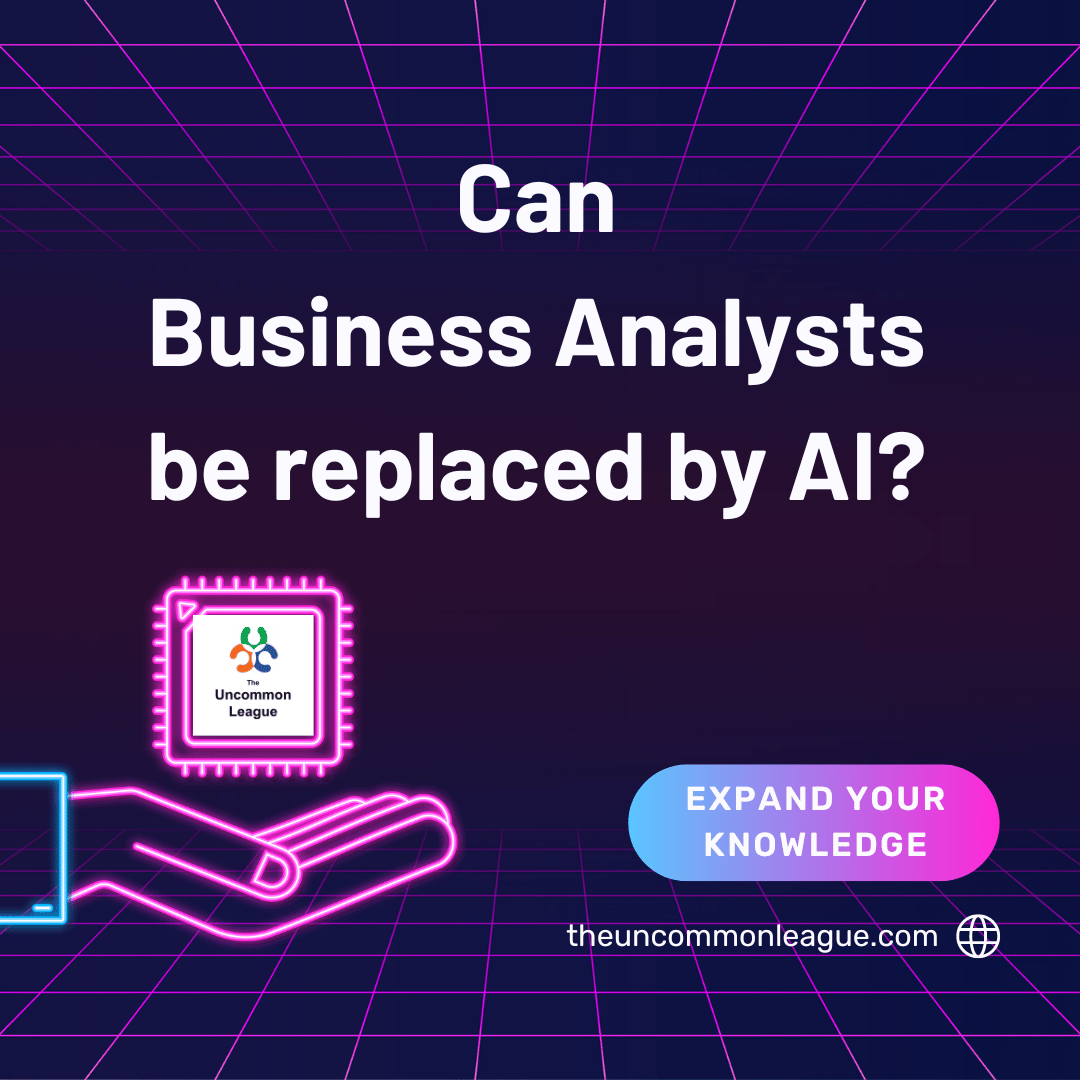Can Business Analysts be replaced by AI?
The discourse surrounding the integration of Artificial Intelligence (AI) in various industries has ignited debates and speculation about its potential to replace human expertise. As a seasoned business analyst navigating these uncharted waters, I find myself at the forefront of this transformation, grappling with the burning question: Can business analysis be replaced by AI?
Let's embark on a journey of exploration, dissecting the intricate interplay between AI technologies and the indispensable role of human analysts in driving organizational success.
The rise of AI has undoubtedly revolutionized how businesses analyze data, automate processes, and derive insights. Machine Learning algorithms, fueled by vast amounts of data, excel in identifying patterns, making predictions, and optimizing operations with unprecedented speed and accuracy. It's no wonder that some perceive AI as a threat to traditional roles, including that of the business analyst.
However, the essence of business analysis transcends mere data processing. It embodies a holistic understanding of organizational dynamics, stakeholder needs, and strategic imperatives. While AI excels in processing structured data and executing predefined tasks, it grapples with the nuances of human interaction, intuition, and creativity—qualities that define the quintessential business analyst.
Imagine a scenario where an AI-driven system is tasked with optimizing supply chain logistics for a global corporation. It meticulously analyzes historical data, anticipates demand fluctuations, and adjusts inventory levels with surgical precision. Yet, when confronted with unforeseen disruptions—a natural disaster, geopolitical turmoil, or market volatility—it stumbles, unable to navigate the complexities of uncertainty.
Herein lies the crux of the matter: AI thrives in environments characterized by stability and predictability, where patterns prevail and deviations are the exception. Conversely, business analysis thrives in the realm of ambiguity, where innovation emerges from uncertainty, and strategic foresight guides decision-making.
Moreover, the evolution of AI is a testament to its adaptability in tackling new challenges and problems. Much like a business analyst refining their skills through experience and exposure to diverse scenarios, AI algorithms continuously learn and evolve to address emerging complexities.
Consider the field of Natural Language Processing (NLP), where AI algorithms have made remarkable strides in understanding and generating human language. From sentiment analysis to language translation, these algorithms transcend linguistic barriers, revolutionizing how we interact with technology.
As a business analyst, envision harnessing the power of AI-driven NLP tools to sift through mountains of textual data—customer feedback, market reports, social media chatter—to distill actionable insights in real-time. The synergy between human intuition and AI-driven analysis empowers us to unearth hidden trends, anticipate market shifts, and craft strategies that resonate with stakeholders.
Furthermore, AI augments the role of the business analyst as a strategic advisor, rather than supplanting it. By automating routine tasks and data processing, AI liberates analysts to focus on high-level decision-making, innovation, and stakeholder engagement. It fosters a symbiotic relationship wherein human ingenuity complements AI's computational prowess, propelling organizations towards greater efficiency and competitiveness.
Yet, the integration of AI into business analysis is not without its challenges and ethical considerations. As we entrust algorithms with critical decision-making processes, we must grapple with issues of transparency, accountability, and bias mitigation. The black box nature of some AI models poses a conundrum for business analysts, who strive for transparency and traceability in their analytical methodologies.
Moreover, the ethical implications of AI-driven automation raise pertinent questions about job displacement and societal impact. While AI augments the capabilities of business analysts, it also necessitates reskilling and upskilling initiatives to ensure a smooth transition towards a hybrid workforce, where humans and machines collaborate synergistically.
In essence, the future of business analysis lies not in the dichotomy of man versus machine, but in the convergence of human expertise and AI-enabled intelligence. It's a paradigm shift that demands adaptability, creativity, and a relentless pursuit of knowledge.
As we stand on the precipice of technological transformation, let us embrace AI not as a harbinger of obsolescence, but as a catalyst for evolution. Let us harness its potential to amplify our analytical capabilities, foster innovation, and drive organizational success. For in the ever-evolving landscape of business analysis, the human intellect remains the ultimate arbiter of insight, empathy, and strategic foresight.
In conclusion, the notion that AI will replace business analysts is a fallacy. Instead, let us envision a future where AI empowers business analysts to transcend conventional boundaries, unlock new frontiers of discovery, and chart a course towards unprecedented growth and prosperity.
Tags #businessanalysis #ai

